|
«It is surreal and deeply humbling to have my music heard by so many transcending background» Hello, Furukawa-san. Thank you very much for giving us this opportunity to talk with you about your work. The pleasure and privilege is mine. Thank you for having me. First of all, we would like to know more about you, your musical background and find out how you got into the world of composition.
One of your very first assignments as orchestrator and composer was for Star Wars: The Clone Wars animated series. What do you remark of that work and what did you learn from working on this great TV show?
My appointment on Clone Wars as orchestrator eventually evolved to additional music composition on the spin-off television series. Among the many things I learned working alongside Kevin Kiner (my mentor and senior composer on Clone Wars), perhaps the most educational was observing how he communicated with and served George Lucas’ vision. As composers, we are usually the ones doing the “telling” musically, and therefore often need to consciously adjust ourselves to listen to what the director and the project requires. In hindsight, my younger self was a bit of a raucous know-it-all, and such adjustment of perspective was very much needed. I’m forever grateful to Kevin for having patiently tolerated and set me straight. Let’s talk about The Last Guardian. How did you got involved in this project?
Once you are on board, was it difficult to find the proper musical tone for the wonderful world created by Ueda-san? I think you have done a fantastic job in this respect.
While I was playing the game and I listened your music, I realized how you avoid showing with your music what we are seeing on screen, playing the action instead of the emotion during an emotional scene or vice-versa. To me, it reflects your great work from the point of view of a filmmaker for the story of Trico and the boy because you enrich the narrative with this decision. Can you tell us about this?
How delays in the launch of the game (several years) affect your work? With that uncertainty, it must have been difficult to you compose the score.
Your soundtrack has nothing to do with Oshima or Otani works for Ico and Shadow of the Colossus. Was it clear for you and Ueda-san that there will not be any reference of the music from the previous games?
Composer, orchestrator, piano performer, orchestra conductor… I suppose that it has been a wonderful experience for you recording with the London Symphony Orchestra, London Voices and Trinity Boys choirs. Tell us about what did you feel during these recording days and how much work is required for a recording like this.
The scope of the recording sessions was bigger than anything I had previously experienced in my career, and therefore took massive effort in preparation and coordination. My wonderful producers at Sony Music Publishing and Mario de Sa, the LSO manager, were instrumental in making this all happen. One might falsely assume that institutions as esteemed as the LSO, London Voices, and the Trinity Boys Choir would have a lot of hurdles to overcome, but the reality was anything but. They are truly some of the most genuine and humble musicians I have every had the pleasure of working alongside, and I could not imagine The Last Guardian’s score without them. Also, due to the extended music production timeline, I was able to orchestrate everything myself. I believe orchestration to be just as important as composition in defining a composer’s voice, and relish every opportunity to do so myself. What do you think when you read a lot of great reviews of your music for The last Guardian as well as unanimous recognition of specialized media? Did you imagine something like this?
Furukawa-san, once again, thank you very much for the interview and your kindness, thank you very much for give us such a fantastic score as The Last Guardian. BSOSpirit team wish you all the best from Spain. Thank you, once again, for having me. It’s been an absolute pleasure speaking with you, and thank you for such warm remarks.
BSOSpirit’s team would like to thank Greg O’Connor his valuable help to conduct this interview.
|
Author
BIO: Effortlessly blending timeless orchestral elegance with modern sensibilities, award-winning composer Takeshi Furukawa’s music has accompanied some of the world’s most recognizable franchises and brands on screen. From his television works for Star Trek: Enterprise and Star Wars: Clone Wars, to the prestigious Cannes Lions-winning global campaigns for Mercedes-Benz, Apple, and Sony, Furukawa’s signature style of soaring melodies colored by refined orchestration has become synonymous with cinematic grandeur. His most recent appointment on the blockbuster PlayStation 4 title The Last Guardian has further established Furukawa as one of the most exciting new voices in the industry. For this third installment in the seminal Ico franchise, Furukawa collaborated with the London Symphony Orchestra, the Trinity Boys Choir, and the London Voices. The resulting score has garnered universal praise with various media outlets hailing Furukawa’s music as «wondrous» (IGN) and «entirely gorgeous» (Forbes). Previous works in cinema include scores to NoNAMES and the critically acclaimed Slamdance-winning documentary Bhopali. An ardent enthusiast of contemporary concert music, he also is currently working on a forthcoming album of chamber works. Furukawa resides in Los Angeles, and is represented worldwide by the Gorfaine/Schwartz Agency.
|


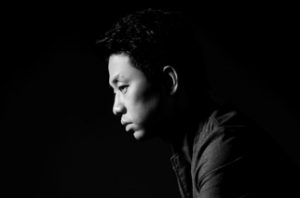
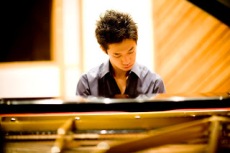 I was born in Tokyo, and grew up in the suburbs of Los Angeles after moving to the States at the age of three. My parents, though nonmusical themselves, accorded me a very privileged music education; I started on the piano then later the viola, while also receiving private instructions in basic theory such as solfège and counterpoint. When I heard John Williams’ score for Jurassic Park, I was mesmerized by the power of film music, and was inspired to pursue composition for media.
I was born in Tokyo, and grew up in the suburbs of Los Angeles after moving to the States at the age of three. My parents, though nonmusical themselves, accorded me a very privileged music education; I started on the piano then later the viola, while also receiving private instructions in basic theory such as solfège and counterpoint. When I heard John Williams’ score for Jurassic Park, I was mesmerized by the power of film music, and was inspired to pursue composition for media.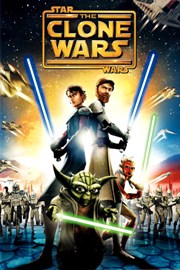 My first professional assignment was orchestrating on Star Trek: Enterprise followed by Star Wars: The Clone Wars (theatrical version) thereafter. Working on Enterprise was especially beneficial, as it gave me a weekly opportunity to put to practice what I had studied, and then analyze and learn from mistakes; it served as a crash-course in transitioning from the classroom to the real world. I was extremely fortunate to be given such an opportunity to spend as many hours with a live orchestra so early in my career.
My first professional assignment was orchestrating on Star Trek: Enterprise followed by Star Wars: The Clone Wars (theatrical version) thereafter. Working on Enterprise was especially beneficial, as it gave me a weekly opportunity to put to practice what I had studied, and then analyze and learn from mistakes; it served as a crash-course in transitioning from the classroom to the real world. I was extremely fortunate to be given such an opportunity to spend as many hours with a live orchestra so early in my career.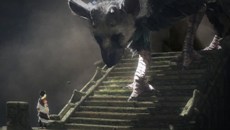 Tommy Kikuchi, the music producer who also worked on Shadow of the Colossus, gave me an opportunity to submit a demo based on several early development images. I’m not completely privy to the details, but have been told that they held multiple rounds of searches with a number of candidates considered. As an ardent fan of Ueda-san’s previous works, I embraced the opportunity with great enthusiasm, and submitted a short piece reflective of my musical instincts and sensibilities. Something must have struck a chord with Ueda-san and the development team, as I was invited to join the project shortly thereafter.
Tommy Kikuchi, the music producer who also worked on Shadow of the Colossus, gave me an opportunity to submit a demo based on several early development images. I’m not completely privy to the details, but have been told that they held multiple rounds of searches with a number of candidates considered. As an ardent fan of Ueda-san’s previous works, I embraced the opportunity with great enthusiasm, and submitted a short piece reflective of my musical instincts and sensibilities. Something must have struck a chord with Ueda-san and the development team, as I was invited to join the project shortly thereafter.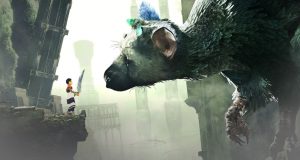 Thank you. From the onset, Ueda-san and I were in agreement regarding the concept of the score: organic and symphonic, cinematic, but emotionally restrained. Perhaps our most daring decision was to completely do away with any ethnicity, and rather juxtapose traditional and classical instrumentation against the unorthodox world of The Last Guardian. We were keenly aware of the enthusiastic reception of Shadow of the Colossus’ score with its use of interesting ethnic colors, yet felt that doing so similarly for The Last Guardian would be unnecessary and at worst, trite.
Thank you. From the onset, Ueda-san and I were in agreement regarding the concept of the score: organic and symphonic, cinematic, but emotionally restrained. Perhaps our most daring decision was to completely do away with any ethnicity, and rather juxtapose traditional and classical instrumentation against the unorthodox world of The Last Guardian. We were keenly aware of the enthusiastic reception of Shadow of the Colossus’ score with its use of interesting ethnic colors, yet felt that doing so similarly for The Last Guardian would be unnecessary and at worst, trite.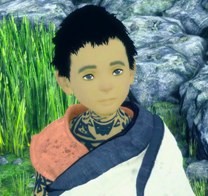 Refraining from spoon-feeding the player is an important characteristic of Ueda-san’s games, and it was imperative for the music to inherit this same ethos. Furthermore, by avoiding aurally reiterating visual information, the score is able to add an additional dimension to the narrative, much like in film. This method makes much sense as an overall approach to scoring video games, and has been referred to as “intensity” or “energy levels” by other composers. For example, it is impossible to perfectly sync up action music to an action scene in video games due to its interactive nature. Therefore, addressing the emotional aspects instead not only alleviates such predicament, but also enriches the overall experience with a cinematic quality.
Refraining from spoon-feeding the player is an important characteristic of Ueda-san’s games, and it was imperative for the music to inherit this same ethos. Furthermore, by avoiding aurally reiterating visual information, the score is able to add an additional dimension to the narrative, much like in film. This method makes much sense as an overall approach to scoring video games, and has been referred to as “intensity” or “energy levels” by other composers. For example, it is impossible to perfectly sync up action music to an action scene in video games due to its interactive nature. Therefore, addressing the emotional aspects instead not only alleviates such predicament, but also enriches the overall experience with a cinematic quality.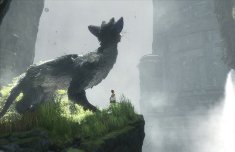 There were indeed moments of uncertainty and anxiety as a result of the delays. However, I was able to take advantage of such extra time sketching and experimenting with ideas. Throughout the delay, Ito-san (Tsubasa Ito, the audio director) and I kept in contact, and I was given constant updates. Therefore, it consequently accorded us a more luxurious music production schedule, ultimately benefitting the end result.
There were indeed moments of uncertainty and anxiety as a result of the delays. However, I was able to take advantage of such extra time sketching and experimenting with ideas. Throughout the delay, Ito-san (Tsubasa Ito, the audio director) and I kept in contact, and I was given constant updates. Therefore, it consequently accorded us a more luxurious music production schedule, ultimately benefitting the end result.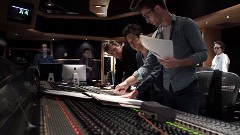 Our decision to not directly reference Ōshima-san and Ōtani-san’s prior works was ultimately reflective of our interpretation of how The Last Guardian fit into the canon of the ICO/Shadow universe. As every player has their own way of interpreting The Last Guardian, I want to proceed with caution addressing this… It is without question that there is some connection between The Last Guardian and the previous two games. However, for me, the correlation wasn’t as direct, and therefore the reason the score doesn’t blatantly reference any thematic materials from previous scores. Additionally, as the scores for both ICO and Shadow are seminal works, I felt it necessarily to start with a blank palette in order to avoid being derivative.
Our decision to not directly reference Ōshima-san and Ōtani-san’s prior works was ultimately reflective of our interpretation of how The Last Guardian fit into the canon of the ICO/Shadow universe. As every player has their own way of interpreting The Last Guardian, I want to proceed with caution addressing this… It is without question that there is some connection between The Last Guardian and the previous two games. However, for me, the correlation wasn’t as direct, and therefore the reason the score doesn’t blatantly reference any thematic materials from previous scores. Additionally, as the scores for both ICO and Shadow are seminal works, I felt it necessarily to start with a blank palette in order to avoid being derivative.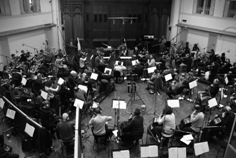 It was an absolute privilege to have such esteemed musicians grace the score with their talents. Despite being the composer of the music, I truly felt like the least qualified individual to be in the room. I, therefore, left a lot of interpretive freedom to the orchestra by refraining from over-making the score with dynamics and expressions, and being verbose with performance directions during the recording sessions. What the LSO, London Voices, and the Trinity Boys Choir brought to the table as a result was beyond anything I could have imagined.
It was an absolute privilege to have such esteemed musicians grace the score with their talents. Despite being the composer of the music, I truly felt like the least qualified individual to be in the room. I, therefore, left a lot of interpretive freedom to the orchestra by refraining from over-making the score with dynamics and expressions, and being verbose with performance directions during the recording sessions. What the LSO, London Voices, and the Trinity Boys Choir brought to the table as a result was beyond anything I could have imagined.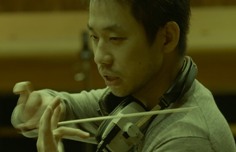 It is surreal and deeply humbling to have my music heard by so many transcending backgrounds. I feel that the score and I have benefitted from a lot of goodwill by association with and riding the coattails of Ueda-san’s wonderful game. I was aware of the hype and anticipation surrounding the game, however for the music to receive this much attention was honestly unexpected. This truly is a testament to the reverence towards Ueda-san’s work, and I feel privileged to have been given the opportunity to make my small contribution to the sum.
It is surreal and deeply humbling to have my music heard by so many transcending backgrounds. I feel that the score and I have benefitted from a lot of goodwill by association with and riding the coattails of Ueda-san’s wonderful game. I was aware of the hype and anticipation surrounding the game, however for the music to receive this much attention was honestly unexpected. This truly is a testament to the reverence towards Ueda-san’s work, and I feel privileged to have been given the opportunity to make my small contribution to the sum.

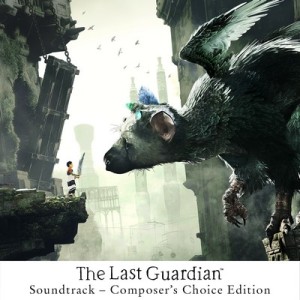
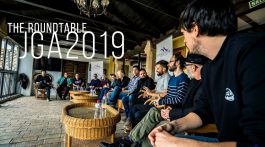
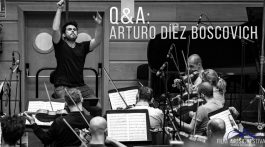
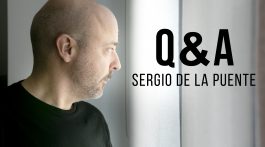
No hay comentarios